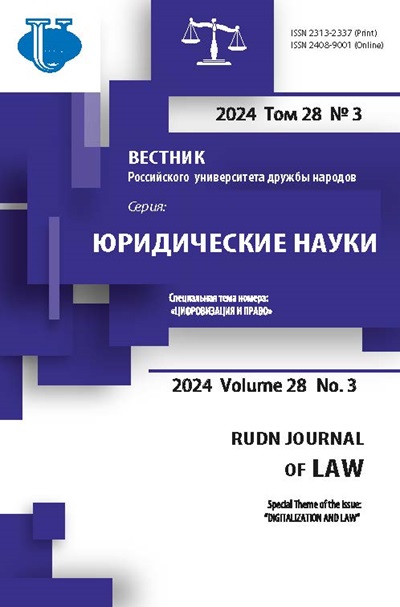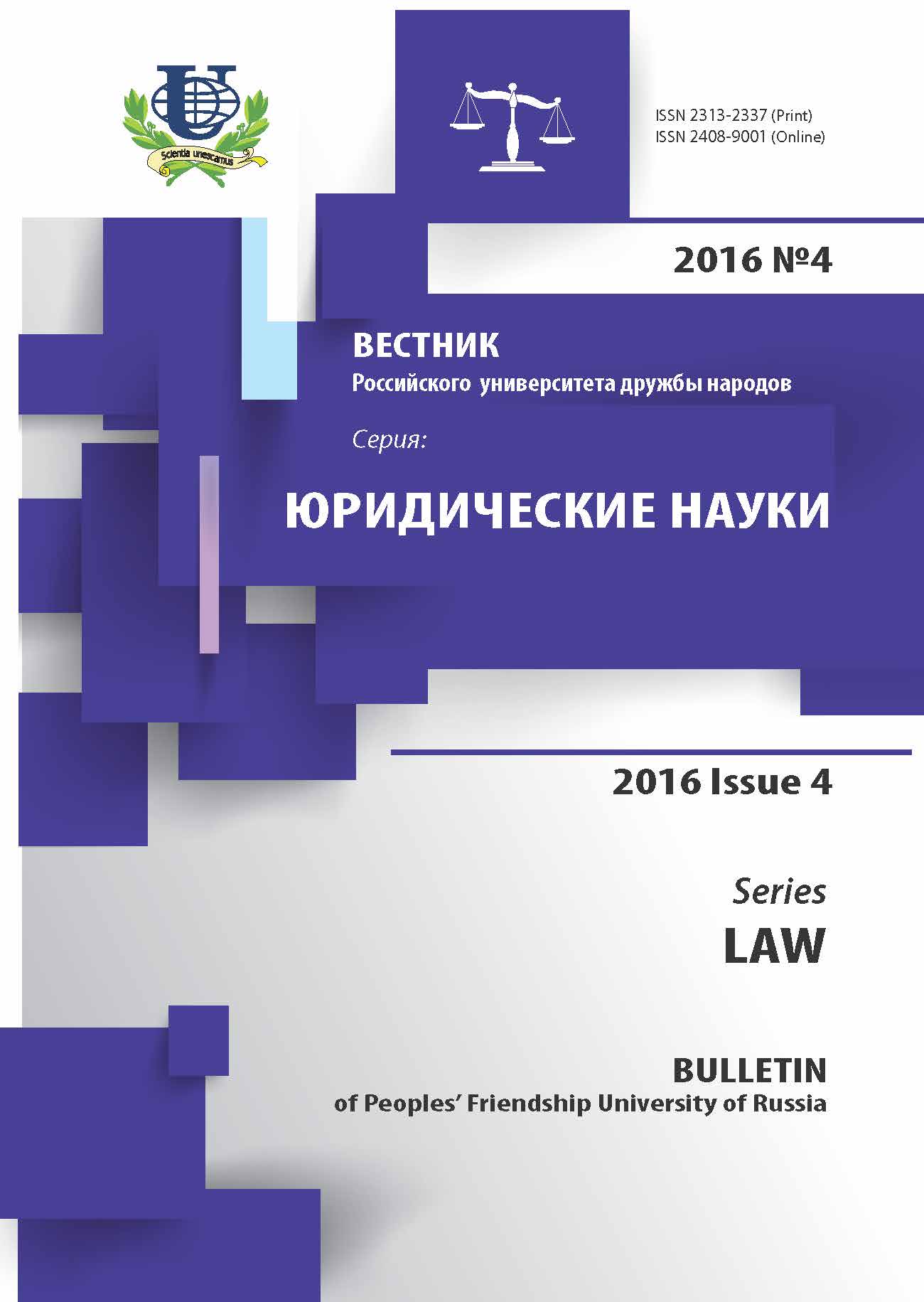The Future of Case Law in Russia
- Authors: Grebennikov V.V1, Grudtsina L.Y.2
-
Affiliations:
- Peoples’ Friendship University of Russia
- Financial University under the Government of the Russian Federation
- Issue: No 4 (2016)
- Pages: 99-110
- Section: Articles
- URL: https://journals.rudn.ru/law/article/view/15131
Cite item
Full Text
Abstract
24th of November 2016, the President of Russia submitted to the State Duma of the Russian Federation’s Federal Assembly the draft Federal constitutional law «On introducing amendments to the Federal constitutional law «On the Constitutional Court of the Russian Federation». The bill proposes a new form of the Constitutional court judgment regarding the results of consideration of the case about the verification of constitutionality of a statutory act of public authority or a treaty between bodies of public authority, - the decision to declare the statutory act or the treaty or individual provisions of them corresponding to the Constitution in the interpretation given by the Constitutional Court of the Russian Federation. In the authors’ opinion, such a new form (and new legal nature) of the Constitutional Court judgment marks a historic turn of the Russian state policy towards the development of case law, strengthening the place and role of judicial precedent and lawmaking. This means that other (possible) interpretation will not be taken into account by courts, thereby, the judicial system will become more manageable, and decisions taken by courts - in terms of possible interpretations of the Basic law - more predictable. The article also explores the concept of «judge-made law», which in connection with the submission of the draft Federal constitutional law, takes on new meaning and new legal nature: firstly, the judge-made law, as one of the most common concepts in modern Western European jurisprudence and the Anglo-American common law, in fact, starts its development in Russia, secondly, the classic concept of the judge as an «implementer» of the law-making functions of the court right from the beginning starts to be distorted in Russia, because the right to be «interpreter» (commentator) belongs only to the Constitutional Court of the Russian Federation, the lower units of the judicial system no longer can, but are obliged to follow the position of the Constitutional Court of the Russian Federation. In any case, according to the authors, the development of judicial precedent and lawmaking is a significant positive step for the development of the legal system of the state. The question is debatable: what to give preference in case of interpretation of the regulation to - explanation of a will of the legislator which he wanted to express, or to the text of the regulation. The will of the legislator only so makes the law as far as it is expressed in the regulation as there are requirements to the acts, uniform in the territory of the state, establishing the rights and obligations.
About the authors
Valery V Grebennikov
Peoples’ Friendship University of Russia
Email: grebval@yandex.ru
Law Institute 6, Miklukho-Maklaya st., Moscow, Russia, 117198
Ludmila Yu Grudtsina
Financial University under the Government of the Russian Federation
Email: ludmilagr@mail.ru
Legal support department of economic activity 4, 4th Veshnyakovsky pr., Moscow, Russia, 109456
References
















